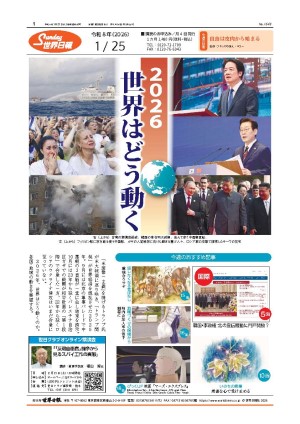オバマ氏、リビアの「失敗」から教訓 Obama learned lessons from Libya ‘mistake,’ White House says
ホワイトハウスは11日、オバマ大統領が、リビア指導者、ムアマー・カダフィ氏追放後への備えができなかったことから起きた「最大の失敗」から教訓を学び、シリア内戦と「イスラム国」との戦いで賢明な軍事的判断ができるようになったと指摘した。
アーネスト大統領報道官は、オバマ氏が2013年に、化学兵器の使用を受けたシリア軍への空爆を実行しない判断を下したのは、「空爆した場合に、シリアで起こること」への懸念が一因だったと語った。
「軍事行動による長期的な影響を考慮することは、最高司令官にとって重要なことだ。これを元にオバマ大統領は、イラク、シリア両国での(「イスラム国」への)対応に関する意思決定を行った」
オバマ氏は、シリアのアサド大統領に化学兵器を使用しないよう警告した。「レッドライン(越えてはならない一線)」としてよく知られているが、オバマ氏はその後、これをほごにした。その代わりとして、ロシアの支援を受け入れ、化学兵器をシリア外に移送する合意をロシアが仲介した。
オバマ氏は「FOXニュース・サンデー」で、任期中の最大の失敗は、2011年の蜂起の間に民間人を保護するために米国などが空爆を行った後、ポスト・カダフィのリビアへの計画を立てなかったことだと語った。カダフィ氏が殺害されると、リビア情勢は一気に不安定化し、2012年にはベンガジの米中央情報局(CIA)施設で米国人4人が殺害され、「イスラム国」はシリアとイラク以外にも主要な拠点を獲得した。
ヘリテージ財団の国家安全保障問題専門家ジェームス・ジェイ・キャラファノ氏は、大統領がリビアでの対応を最大の失敗としたことは、事実とは程遠いと指摘した。
「リビアで第3次世界大戦を起こそうとしていたわけではない。一方、(2011年の)イラクからの(米兵)撤収で中東全体が大きく不安定化し、イスラム主義者らによる反乱が世界中で起きた。私から見れば、こちらの方が重大だ。ロシアが東欧の平和と安全を脅かすのを許している。こちらの方が重大だ。米国以外ではアジアで最も重要な大国、中国との関係で失敗した。これも重大だ」
「にもかかわらずオバマ氏は、米国にとって最も有害なことを重視しないことにした。自身の大統領図書館で目立つ展示物にはならないことを重視することにした」とキャラファノ氏は結論付けた。
ホワイトハウスによると、バイデン副大統領は11日、イラクのアバディ首相、クルド自治政府のバルザニ議長と個別に行った電話会談で「イラクと、(「イスラム国」と)戦うイラクの人々を支援することを再確認する」と語った。
アバディ、バルザニ両氏は「(モスル)解放のため継続して戦い、協力していくことの重要性を強調した」。モスルは2年前から、「イスラム国」の支配下にある。
リビアに関する大統領の発言は、民主党の大統領候補ヒラリー・クリントン氏にとっても問題となる可能性がある。国務長官として2011年に、リビアへの軍事介入を強力に推し進めたからだ。
クリントン氏はさらに、シリア内戦での軍事的対応を強化するよう主張した。それには飛行禁止空域の設置が含まれていたが、オバマ氏はこれに応じようとはしなかった。
(4月11日付)
The White House said Monday that President Obama learned lessons from his “worst mistake” - failing to prepare for the aftermath of ousting Libyan leader Moammar Gadhafi - and said this has led to smarter military decisions in Syria’s civil war and against the Islamic State.
White House press secretary Josh Earnest said Mr. Obama’s decision not to order airstrikes against Syrian forces in 2013 over their use of chemical weapons was based partly on the president’s concern over “what would happen next in Syria after that military strike was taken.”
“Understanding the longer-term consequences of military action is important for the commander in chief to consider,” Mr. Earnest said. “It certainly guides the decision-making that President Obama has made in the context of responding to [the Islamic State], both in Iraq and in Syria.”
The president had warned Syrian President Bashar Assad not to use chemical weapons - Mr. Obama’s infamous “red line” from which he backed away. The U.S. instead accepted Russia’s help in brokering a deal to transfer chemical weapons out of Syria.
Mr. Obama told “Fox News Sunday” that the worst mistake of his presidency was failing to plan for a post-Gadhafi Libya after the U.S. and other countries carried out strikes to protect civilians during an uprising in 2011. After Gadhafi was killed, Libya plunged into chaos, four Americans were killed at a CIA compound in Benghazi in 2012, and the Islamic State gained a major foothold outside its Syria and Iraq base.
James Jay Carafano, a national security specialist at the conservative Heritage Foundation, said the president’s choice of Libya as his worst mistake is not even close.
“You’re not going to start World War III in Libya,” Mr. Carafano said. “On the other hand, withdrawing [U.S. troops] out of Iraq [in 2011] has been extremely destabilizing to the entire Middle East and has given rise to a global Islamist insurgency. That, to me, is a bigger deal. Allowing Russia to threaten the peace and security of western Europe, that’s a bigger deal. Screwing up your relationship with China, the most significant power in Asia outside the United States, that’s a big deal.
“But Obama chooses not to focus on the things which are most harmful to us; he chooses to focus on the things which aren’t going to make a nice display case in his presidential library,” Mr. Carafano concluded.
Vice President Joseph R. Biden spoke by phone separately Monday with Iraqi Prime Minister Haider al-Abadi, and the president of the Iraqi Kurdistan region, Massoud Barzani, “to reaffirm U.S. support for Iraq and the Iraqi people’s ongoing fight” against the Islamic State, the White House said.
The leaders “underscored the urgency of sustained progress in the fight and cooperation to liberate” the city of Mosul, which has been under the Islamist group’s control for two years.
The president’s comments about Libya also could pose problems for Democratic presidential candidate Hillary Clinton. As secretary of state in 2011, she was a strong proponent of the military intervention in Libya.
Mrs. Clinton also has advocated for a more forceful U.S. military response in Syria’s civil war, including the enforcement of a no-fly zone, a step Mr. Obama has been unwilling to take.
April 11, 2016





